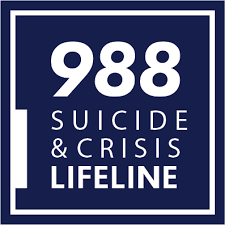Emotional & Mental Health Awareness — for — International Students
Emotional wellness means you:
Did you know...
-

56.7% of 17–18 year olds
in the US have been diagnosed with a mental disorder at some point in their life
Source: National Institute of Mental Health -

40% of college students
said that they were so depressed they found it difficult to function
Source: American College Health Association
— Laurette Gagnon Beaulieu
Watch this video to learn about common stressors international students face and how they overcame it.
Not sure if you have a mental health issue?
To achieve emotional wellness, you can:
Building healthy habits into your everyday routine will help make sure that you are at your best. Remember to...




International students will need to take extra care in preparing themselves on what to expect before departing their home country and after they arrive.
Build a Community & Keep In Touch
International students may face culture shock when studying abroad. While it’s normal to feel this way, getting involved can help ease the transition.
- Join a group or club
- Volunteer
- Attend events in your community and campus
- Talk with people in your class
- Connect with people back home
Seek Help
What is counseling? Is it time to seek treatment?
A relationship that helps to promote emotional wellness, identify goals and potential solutions to problems, improve communication and coping skills, and strengthen self-esteem. Counselors work on strategies to overcome obstacles and personal challenges.
There are many myths out there including...

How do you decide?
If you find that you are having a hard time adjusting, if you don’t feel like yourself, if you want someone to talk to, or if you want help, you can contact a counselor. Here are some places where you can look for someone to get help:
Counseling Center — On campus center where you can talk to a Psychologist or Psychiatrist at free or reduced costs.
Therapist/Counselor — A clinician that holds a Master's degree or higher, has a state license, but cannot prescribe medication. Often called “psychologist”, “therapist”, “counselor”, “social worker” or “clinician”.
Psychiatrist — A doctor (MD) who has gone through medical school and has the ability to prescribe medication if necessary.
Does your insurance plan cover mental health?
What can you expect to pay out of pocket?
Anonymous Resource Lines:


Call 24/7: 866-4-U-TREVOR (1-866-488-7386)
Text: 202-304-1200
Chat: Online
English with limited Spanish support

Text (Free in US): 741741
Return to our "Insurance Explained" section for more information and help
